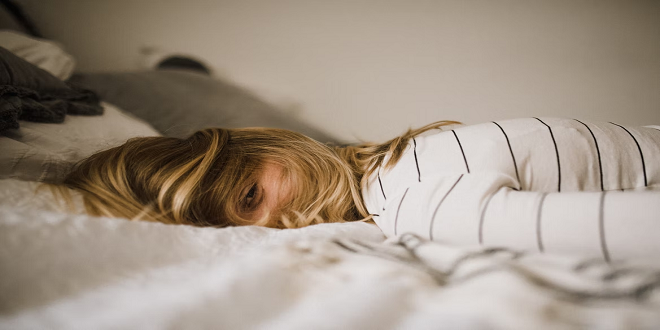Proven Tips to Sleep Better at Night

Do you struggle with insomnia? Do you find it difficult to fall asleep or stay asleep? If yes, then you might be suffering from a sleep disorder. Nearly 60% of the adult population experiences some degree of insomnia at least once in their lives. Sleep is important for your health. Lack of sleep can affect your physical, mental, and emotional well-being. As we grow older, our bodies change and we get more sensitive to stress. This makes getting quality rest even more important as we age. Luckily, there are lots of simple things that everyone can do to help themselves get better sleep and enjoy a better night’s rest sooner rather than later. Here are proven tips that can have a positive impact on your sleeping patterns:
Avoid caffeine too close to bedtime
No matter whether you are a young lady, living an active life, or a senior, living in a home care agency, you should avoid caffeine if you don’t get enough sleep. Caffeine is a powerful stimulant that can keep you awake and increase your heart rate. If you consume caffeine within 6 hours of your bedtime, it will be harder for your body to fall and stay asleep. The more caffeine you consume, the more you need to consume to achieve the same effect. If you love coffee, soda, and energy drinks, there are alternatives you can try so that you could avoid consuming too much caffeine. Instead of coffee, try a cup of green tea, decaf tea, or almond milk. Instead of soda, try water or herbal tea. If you love energy drinks, make sure to avoid them too close to bedtime.
Exercise regularly
Regular exercise is critical for a good night’s sleep. It may sound weird, but exercise can help you fall asleep faster and stay asleep longer. Why? Exercising releases endorphins (happy hormones) into your system, which can help relieve stress and improve your quality of sleep. If you have a busy schedule or find yourself always too busy to get a good workout schedule in, you may want to try masking your anxiety through exercise. Regular exercise can help ease insomnia symptoms such as anxiety, and stress, and even improve sleep quality and quantity.
Develop a sleep ritual
As humans, we are naturally wired to be most productive and creative in the morning after a good night’s sleep. For this reason, it’s important to develop a consistent bedtime ritual that includes everything from relaxing activities to getting nutrition. Incorporating a bedtime ritual can help you relax, unwind, and get the rest you need for a better, more productive day.
Creating a ritual can help you combat the sleep deprivation that can lead to bad habits, like drinking coffee late at night, watching too much television, or overexercising before bed. There are many ways to incorporate a bedtime ritual into your daily life. You can create a bedtime ritual in your own home by turning off all electronics, putting on a relaxing music playlist, and turning off all lights.
Keep your room temperature cool at night
Proper temperature control in your bedroom is crucial for a good night’s sleep. While you do not have to have your room at a freezing temperature, try keeping it between 65° and 68°. This is the temperature that is most conducive to sleep. Keeping your room at too low of a temperature will make it harder for you to fall asleep. On the other hand, too high of a temperature can make you too warm and irritable, which could be just as disruptive to your sleep as not being warm enough.
If your bedroom is too warm or too cold, you will be more susceptible to experiencing disrupted sleep. It is recommended to keep the temperature of your bedroom between 65° and 68°. Sleep experts also recommend that you do not use your bedroom for anything but sleeping and relaxing. This can help to maintain a consistent and ideal sleeping temperature.
Don’t watch TV or use electronics right before bed
Watching TV, using the computer, or using electronics right before bed can keep you up. Try to avoid these activities in favor of reading a book or having an activity that requires your full attention. It is important to keep your mind off of electronics and other stimuli that could be keeping you up. By focusing on another activity, you will be less likely to think about whether you should be sleeping. In addition, limiting your TV time to about two hours before bed is recommended. When you are in bed, your brain should be focused on sleep and not on any other thoughts or activities.
Take a long, hot shower or bath before bed
This is one of the oldest tricks in the book when it comes down to getting a better night’s sleep. If you struggle to fall asleep, try taking a warm or relaxing shower or a bath before bed. It can be tricky to fall asleep after a long day, and a shower or bath can help you relax and fall asleep. Showering or bathing can make you too hot or too cold, depending on your room temperature. Therefore, you should try to keep your room at a comfortable temperature for sleeping and try turning off all lights when you get in the shower or bath to avoid light stimulation.
Conclusion
Hopefully, these sleep hacks will help you find a better balance between sleep and your busy schedule. Make sure to get enough rest so that you feel energized and ready to take on the next day. If you have trouble falling asleep, try keeping your room cool or warm and turning off all lights. And in any case, you should remember that insomnia is a serious issue and you should do your best to tackle that problem!





